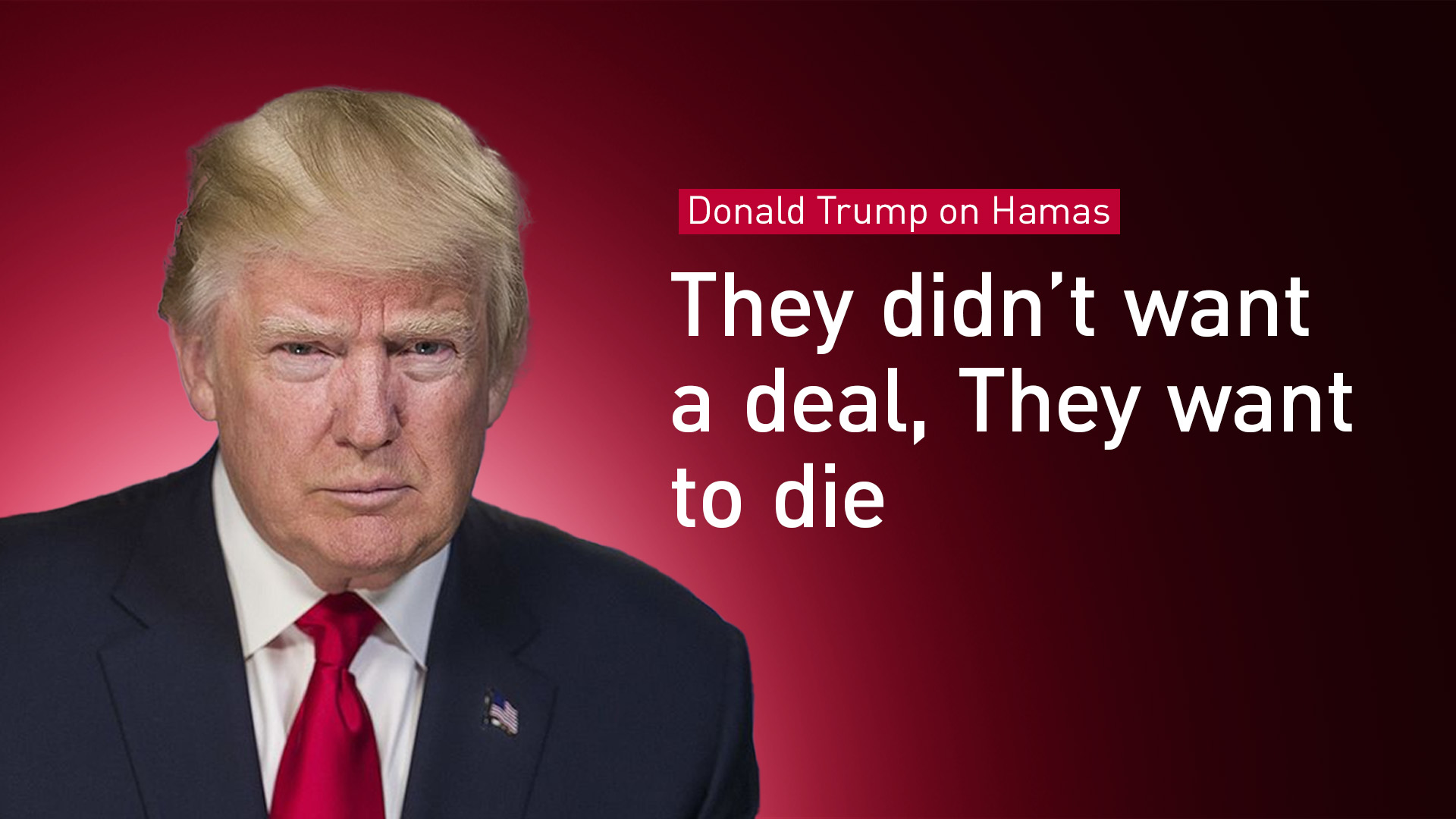Gaza Ceasefire Talks Collapse as Trump Says Hamas Doesn't Want a Deal
U.S. President Donald Trump criticized France's recognition of a Palestinian state, saying it "doesn't carry weight." He also expressed skepticism about a peace deal, stating, "It was too bad. Hamas didn't really want to make a deal. I think they want to die."

ERBIL (Kurdistan24) – Hopes for a ceasefire in Gaza crumbled on Friday as the United States and Israel quit indirect negotiations, leveling sharp accusations that Hamas was obstructing a deal, with U.S. President Donald Trump asserting the militant group "want to die." The collapse of talks unfolded amid a deepening diplomatic rift, as Washington and Jerusalem also strongly condemned France's move to formally recognize a Palestinian state, a decision praised by Hamas and Saudi Arabia but dismissed by Trump as a statement that "doesn't carry weight."
In a series of rapid developments on Friday, the diplomatic push to secure a ceasefire and hostage release deal hit a dead end. U.S. President Donald Trump placed the blame squarely on the Palestinian group.
"It was too bad. Hamas didn't really want to make a deal. I think they want to die," Trump said. He suggested that Hamas was unwilling to release the remaining captives, stating, "Now we're down to the final hostages, and they know what happens after you get the final hostages. And basically because of that, they really didn't want to make a deal."
Echoing the U.S. position, Israeli Prime Minister Benjamin Netanyahu released a statement declaring Hamas the primary impediment to an agreement. "Hamas is the obstacle to a hostage release deal," the premier said. "Together with our U.S. allies, we are now considering alternative options to bring our hostages home, end Hamas's terror rule, and secure lasting peace for Israel and our region."
Hamas immediately contested the American narrative. Bassem Naim, a member of the group's political bureau, accused the U.S. envoy of misrepresenting the negotiations. In an interview with AFP, Naim said, "The negative statements of the U.S. envoy Witkoff run completely counter to the context in which the last negotiations were held, and he is perfectly aware of this, but they come to serve the Israeli position."
The breakdown in talks occurred against a backdrop of widening international divisions over a long-term political solution, ignited by French President Emmanuel Macron’s announcement on Thursday. Macron stated he would formally recognize the State of Palestine during the United Nations General Assembly meeting next month, a move that drew starkly different reactions across the globe.
President Trump reacted to the French decision with dismissal. "He's a very good guy, I like him, but that statement doesn't carry weight," Trump told reporters. U.S. Secretary of State Marco Rubio also criticized the move, calling it an "ill-considered decision" that "serves Hamas and sets the peace process back."
The Israeli government responded with sweeping condemnation. Prime Minister Netanyahu characterized the recognition as a "reward for terror" and an "attempt to destroy Israel," warning a Palestinian state could become "a new Iranian proxy." He added, "Let us be clear, the Palestinians are not seeking a state alongside Israel, but rather a state in its place."
The criticism was echoed across the Israeli political spectrum. Foreign Minister Gideon Sa’ar said, "Any Palestinian state will become a Hamas state," while Justice Minister Yariv Levin described Macron’s move as "direct support for terror and a stain on France's history." Finance Minister Bezalel Smotrich said the decision "gives more incentive" for Israel to annex the occupied West Bank. Opposition figures, including former Prime Minister Naftali Bennett and party leader Avigdor Lieberman, also denounced the decision as a "moral collapse" and a "reward for terror."
Conversely, the French announcement was welcomed by Hamas and key Arab nations. Hamas described the decision as "a positive step towards achieving justice and self-determination for the Palestinian people." Saudi Arabia’s Ministry of Foreign Affairs called it a "historic decision" that "supports the international consensus for the establishment of a Palestinian state on the 1967 borders."
Amid the political firestorm, United Nations Secretary-General Antonio Guterres delivered a sharp rebuke to the international community over the humanitarian situation in Gaza. In a video address to Amnesty International's global assembly, Guterres decried what he called a "moral crisis that challenges the global conscience."
"I cannot explain the level of indifference and inaction we see by too many in the international community -- the lack of compassion, the lack of truth, the lack of humanity," Guterres said, slamming the failure to address the suffering of Palestinians.